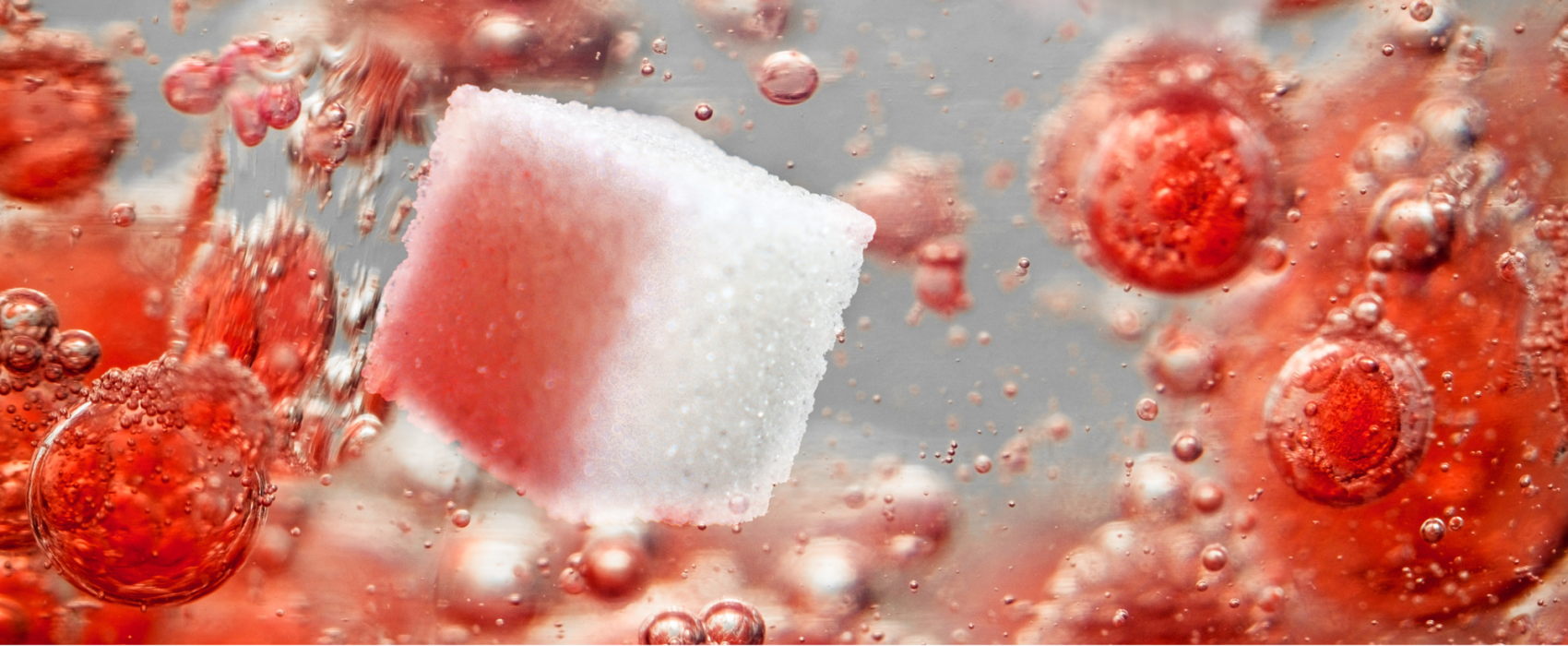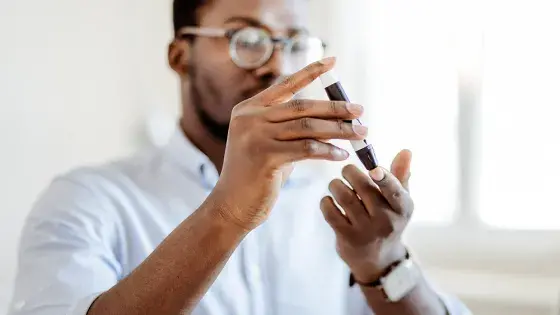Low blood sugar, medically known as hypoglycaemia, occurs when the level of glucose in your blood drops below the normal range.
While it’s typically associated with diabetes, low blood sugar can sometimes affect anyone under certain circumstances, such as skipping meals, excessive exercise or consuming too much alcohol. Recognising the signs early is crucial, as untreated hypoglycaemia can lead to more severe complications, including confusion, loss of consciousness or seizures. A diabetic emergency is much more likely when a person with diabetes is treated with insulin.
In this article, we’ll explore what low blood sugar is, its common symptoms and what you can do to address it effectively.
What Causes Low Blood Sugar?
Blood sugar levels are regulated by the body to provide energy for daily activities. When glucose levels drop too low, the body struggles to maintain normal functioning. Common causes of low blood sugar include:
- Diabetes medications: Insulin and some other diabetes medications carry a risk of hypoglycaemia , particularly if you skip meals, exercise more than usual or have been generally unwell (although abnormally high blood glucose is also a risk in these circumstances)
- Skipping meals or fasting: Without regular food intake, blood sugar levels can fall.
- Excessive physical activity: Prolonged or intense exercise can use up the body’s available glucose.
- Drinking alcohol: Consuming alcohol can interfere with blood sugar regulation because the liver is required to metabolise the alcohol and this impacts generation of available glucose.
- Medical conditions: Some conditions such as insulinoma (a tumour in the pancreas) or hormonal imbalances can also trigger hypoglycaemia.
Common Signs and Symptoms of Low Blood Sugar
Low blood sugar symptoms can vary from person to person. It is important to recognise these common signs early to prevent an emergency.
Mild Symptoms
These symptoms occur when blood sugar levels first begin to drop:
- Hunger: A sudden, intense craving for food, especially sugary or carbohydrate-rich items.
- Shakiness or trembling: A common early indicator caused by the body’s stress response to low glucose.
- Sweating: Feeling clammy or breaking out in a cold sweat.
- Dizziness or light-headedness: A feeling of instability or faintness.
- Fast heartbeat (palpitations): The heart may beat faster as the body tries to respond.
Moderate Symptoms
If blood sugar continues to drop, symptoms may worsen:
- Irritability or mood changes: Feeling unusually anxious, agitated or quick-tempered.
- Weakness or fatigue: A sudden loss of energy or strength, making it difficult to carry out normal tasks.
- Blurred vision: Difficulty focusing or seeing clearly.
- Difficulty concentrating: Feeling confused or unable to think clearly.
Severe Symptoms
Severe hypoglycaemia is life-threatening and requires immediate medical attention:
- Disorientation or confusion: Difficulty recognising surroundings or people.
- Slurred speech: Similar to being intoxicated, speech may become slow or unclear.
- Seizures: Sudden loss of consciousness with involuntary movements.
Coma: Loss of consciousness due to insufficient glucose in the brain.
What to Do If You Recognise Low Blood Sugar
If you or someone you know is experiencing symptoms of hypoglycaemia, it’s important to act quickly. Here’s what you can do:
- Consume Fast-Acting Carbohydrates
Eat or drink something that contains quick sugar, such as:- 150ml of fruit juice
- A small handful of sweets (like jelly babies)
- Glucose tablets
- Avoid foods with fat or protein (like chocolate) as they slow down sugar absorption.
- Check Blood Sugar Levels (if possible)
If you have a glucose monitor, use it to confirm low blood sugar (below 4mmol/L is considered low for most people). - Follow Up with a Longer-Lasting Snack
Once symptoms improve, eat a snack with both carbohydrates and protein, such as a sandwich, yoghurt or a piece of fruit with nuts.
When to Seek Medical Help
In some cases, hypoglycaemia can become severe and requires urgent medical attention. Call for emergency help if:
- The person is unconscious or having a seizure.
- Blood sugar levels do not improve after consuming fast-acting carbohydrates.
- Symptoms continue to worsen despite treatment.
Recognising the early signs of hypoglycaemia, understanding its causes and knowing how to respond can save a life. If you’re prone to low blood sugar, whether due to diabetes or other factors, make it a priority to monitor your glucose levels regularly, maintain a balanced diet and always have fast-acting carbohydrates on hand. Remember, if you ever experience severe symptoms or are unsure how to manage an episode, seek medical advice promptly. You should not drive when hypoglycaemic – seek medical advice on when you can return to driving after severe hypoglycaemia (where assistance has been required from another person).

